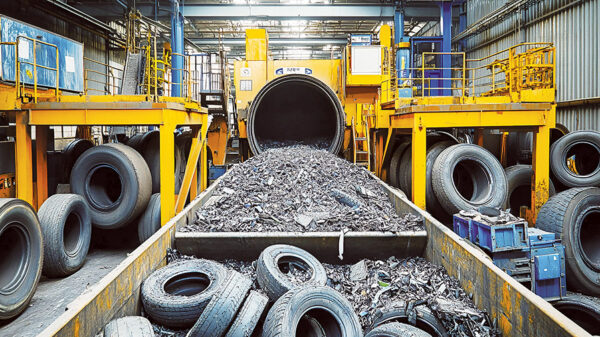As part of its commitment to promoting sustainability and clean communities, New Jersey is awarding nearly $16.2 million in grants to communities across the state to support waste reduction and recycling programs, environmental protection commissioner Shawn M. LaTourette said.
The annual grant awards are based on 2021 recycling performance, the most recent year for which data is available. Municipalities must use their funds for various recycling initiatives which can include sponsoring household hazardous waste collection events, providing recycling receptacles in public places or maintaining leaf composting operations.
“Reducing, reusing and recycling solid waste remains one of the best ways the public can protect the environment each and every day,” said LaTourette. “These grants help our municipalities strengthen their recycling programs and educate their residents on waste reduction. I strongly encourage all residents, businesses, schools, communities and organizations to recommit to recycling to preserve precious resources, divert waste from landfills and other disposal facilities, save energy and combat climate change.”
The grants are awarded through the state’s Recycling Enhancement Act and funded through a $3 per-ton surcharge on trash disposed statewide at solid waste facilities. The DEP returns that money to municipalities based upon how much recycling each community reports accomplishing during the calendar year.
- Municipalities (organized by county) receiving grants of more than $100,000 for their 2021 recycling efforts:
- Bergen County: Paramus, $146,367
- Camden County: Cherry Hill, $124,357; Camden, $104,758
- Cumberland County: Vineland, $536,516
- Essex County: Newark, $360,695; East Orange, $101,348
- Gloucester County: Logan, $255,160; Swedesboro, $118,463; West Deptford, $104,023
- Hudson County: Jersey City, $347,874; Secaucus, $195,184
- Mercer County: Hamilton, $139,876
- Middlesex County: Woodbridge, $262,237; Edison, $239,039; South Brunswick, $173,701; Perth Amboy, $130,909; South Plainfield, $123,429; Old Bridge,
- $122,875; Cranbury, $109,556
- Monmouth County: Middletown, $133,799; Wall, $109,312
- Morris County: Parsippany-Troy Hills, $111,240
- Ocean County: Lakewood, $191,460; Toms River, $169,560; Brick, $125,503
- Passaic County: Paterson, $283,897; Clifton, $173,356; Wayne, $134,607; Passaic, $104,914
- Somerset County: Franklin, $304,41
State Recycling and Solid Waste Disposal Facts
- For 2021, New Jersey generated 22,116,562 total tons of solid waste (disposal and recycling).
- Municipalities (and in limited instances, counties) reported 12,014,367 tons as recycled, and 10,102,195 tons of solid waste disposed.
- New Jersey achieved an overall recycling rate of 54 percent in 2021, a slight decrease from the 2020 rate of 55 percent.
Compared with data from 2020, the overall amount of material reported as recycled and disposed of increased. In addition, the total tonnage of materials reported as being disposed of increased more than the amount recycled, leading to a slight decrease in the overall recycling rate. Solid waste includes municipal waste plus construction debris and other types of non-municipal waste.
Municipal Solid Waste (MSW) Recycling and Disposal Facts
- For 2021, New Jersey generated 10,059,297 tons of MSW.
- Municipalities (and in limited instances, counties) reported recycling 3,770,132 tons of MSW and disposing 6,289,165 tons of MSW.
- New Jersey experienced a MSW recycling rate of 37 percent in 2021, a decrease from the 2020 rate of 39 percent.







